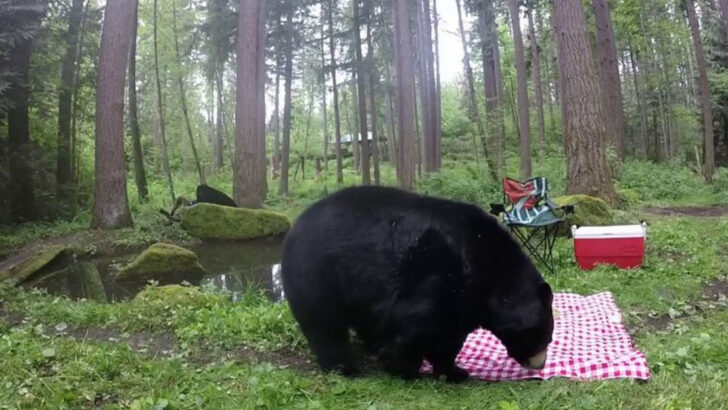Camping in bear country isn’t just about pitching your tent and roasting s’mores under the stars. You’re entering their turf. And bears? They’ve got noses seven times stronger than a bloodhound’s. That granola bar you forgot in your backpack? It might as well be a dinner bell.
But don’t panic. You don’t have to give up your wilderness dreams or sleep with one eye open. With the right moves, you can outsmart even the most curious of black bears and keep your camp safe, peaceful, and bear-free.
Whether you’re a seasoned hiker or a weekend warrior, these 12 tricks are your bear-proof playbook. Ready to camp like a pro — without becoming a snack? Let’s go.
Utilize Bear-Resistant Containers
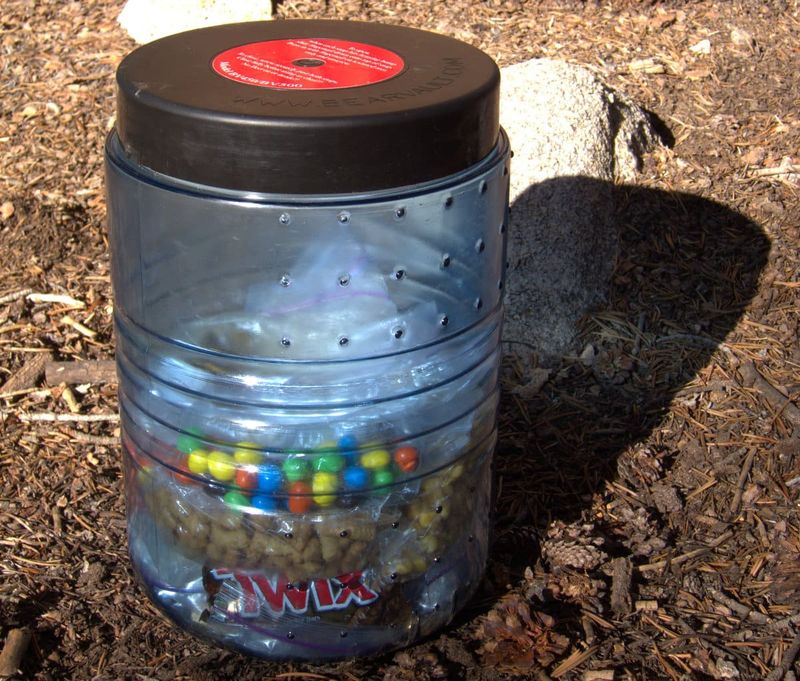
Bear-resistant containers are a game changer in the wild. They’re designed to withstand bear attacks, keeping your food safe and odors contained. These containers are a must-have for any camping trip in bear country. Their robust structure is not easily compromised, even by the most determined bear.
Placing all food and scented items inside one of these not only protects your supplies but also minimizes the chance of attracting bears. This small investment in your gear can make a significant difference in maintaining a peaceful campsite. Always secure the lids tightly to prevent any mishaps.
Properly Store Food Away from Campsite
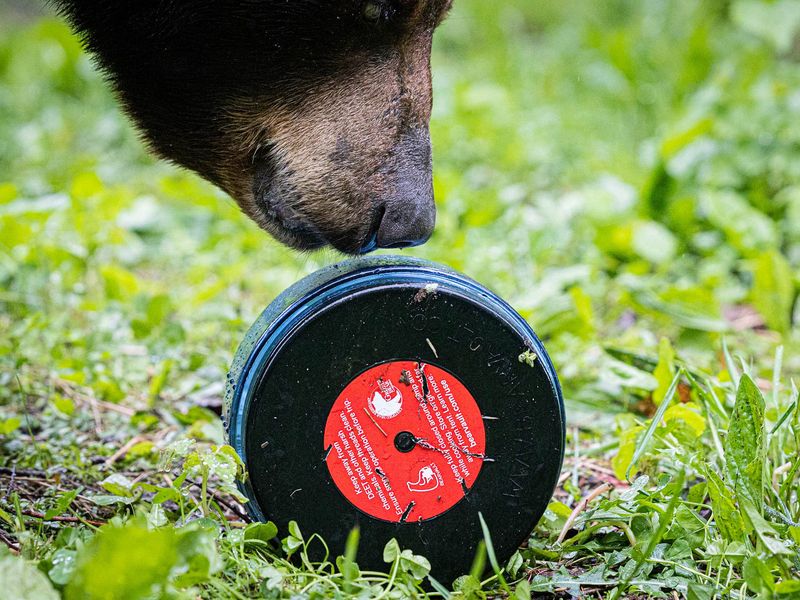
Storing food away from your campsite is a time-tested technique to deter bears. Hanging food at least 10 feet above the ground and 4 feet from the trunk can keep bears from reaching it. This method ensures that your campsite remains free of enticing scents.
Use a sturdy rope and select a branch that can support your food bag’s weight. This practice not only protects your supplies but also contributes to a safer camping environment. It’s an essential habit for campers aiming to keep their campsite bear-free.
Cook at a Distance from Sleeping Area
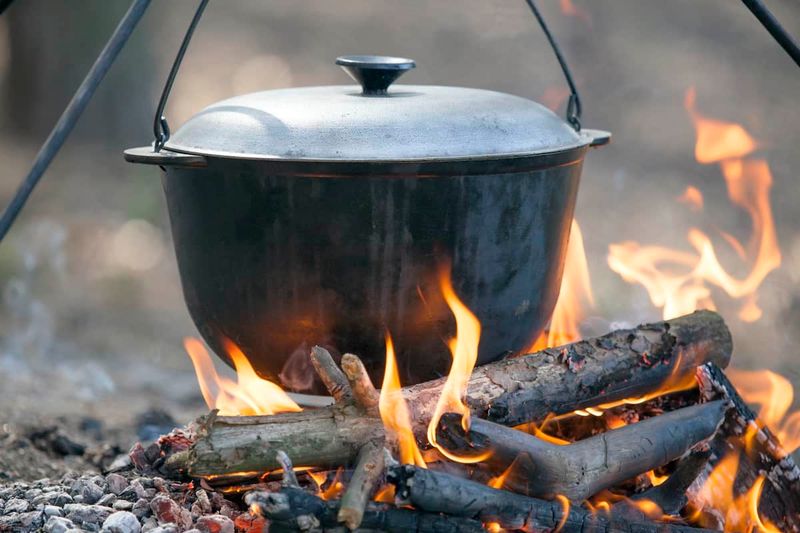
Cooking away from your sleeping area is crucial in bear country. Bears are attracted to food odors, and keeping cooking activities distant helps reduce the likelihood of a curious bear wandering into your tent. Set up a dedicated cooking area at least 100 yards from where you sleep.
This separation creates a barrier between your living space and potential bear attractions. Always clean up thoroughly after meals, removing any leftover food or crumbs. By maintaining this distance, you add an extra layer of security to your camping experience.
Dispose of Garbage Properly
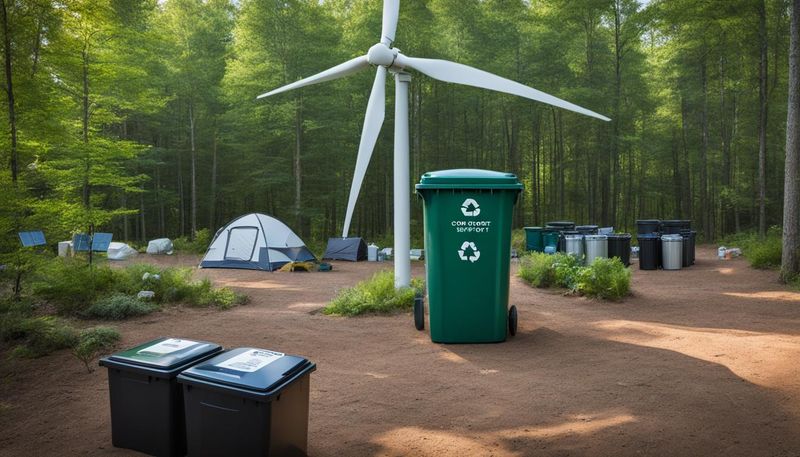
Proper garbage disposal is a critical aspect of camping in bear territory. Bears can smell food and waste from miles away. Use bear-proof trash cans or pack out all garbage to prevent attracting them to your site.
Keeping your campsite clean not only deters bears but also preserves the natural environment. Regularly check the area for any overlooked trash, and never burn waste, as this can draw bears. This practice is essential for a responsible and safe camping trip in areas where bears roam.
Use Bear Bells and Noise Makers
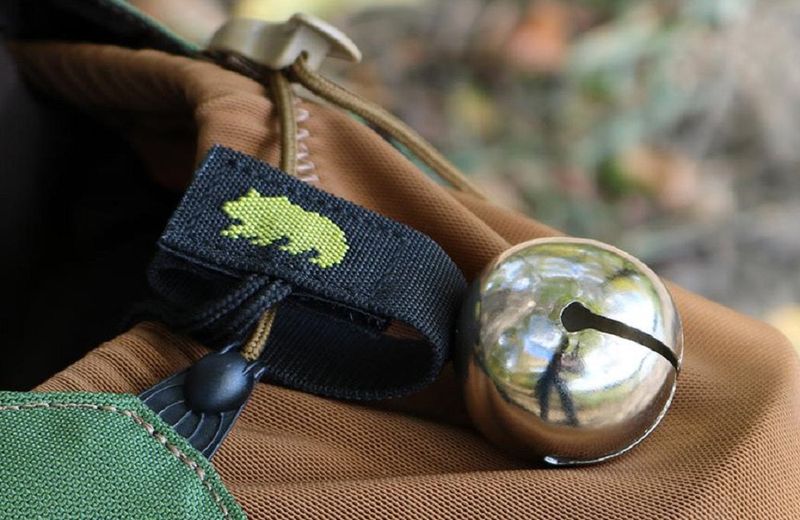
Bear bells and noisemakers are simple yet effective tools to alert bears of your presence. Bears generally avoid humans, so making noise while hiking or moving around camp helps prevent surprise encounters. Attach bells to your backpack or use a whistle to announce your approach.
Consistent noise creates a safer environment for both campers and bears. This precaution ensures that bears have ample warning to steer clear. By incorporating noise-making devices into your routine, you contribute to a harmonious coexistence with wildlife.
Avoid Strong Scents
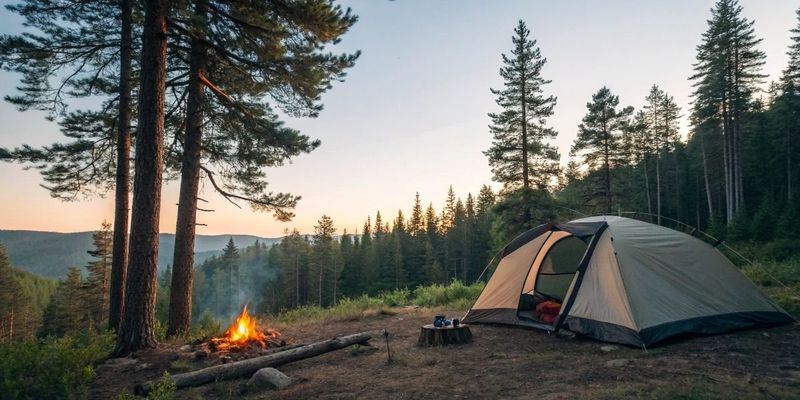
Strong scents can lure bears to your campsite, so it’s essential to minimize them. Store toiletries and scented products in airtight bags or containers, away from sleeping and cooking areas. This reduces the risk of attracting a bear’s keen sense of smell.
Choose unscented versions of essentials whenever possible. This small adjustment in your packing list can make a big difference in bear-prone regions. By managing scents effectively, you create a less appealing environment for bears, enhancing your camping safety.
Respect Bear Signs and Warnings
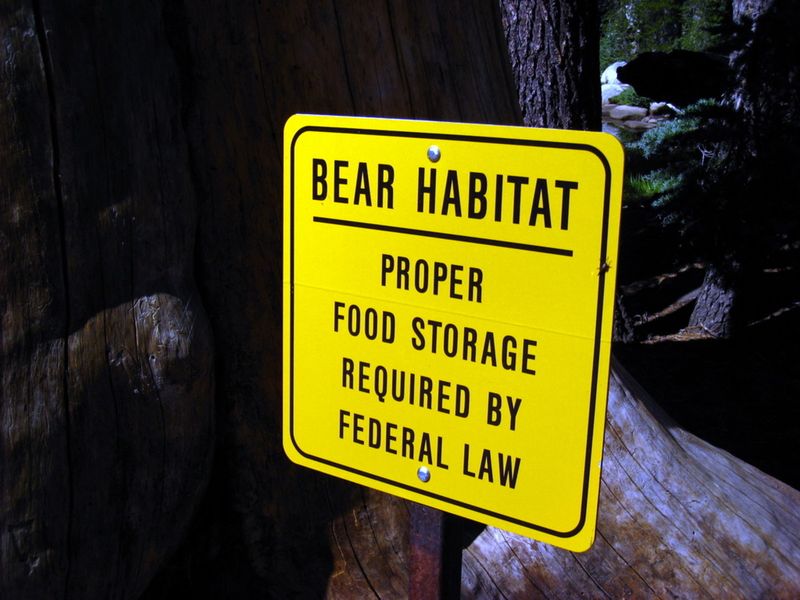
Paying attention to bear signs and warnings in parks and campsites is crucial. These warnings are there for your safety, indicating where recent bear activity has been spotted. Always follow guidelines about closed trails and affected areas.
Respecting these signs can prevent dangerous encounters. Park rangers post them to protect both visitors and bears from harm. Being informed and cautious is a proactive step towards a safe camping experience. This respect for wildlife is key to enjoying your outdoor adventure responsibly.
Travel in Groups
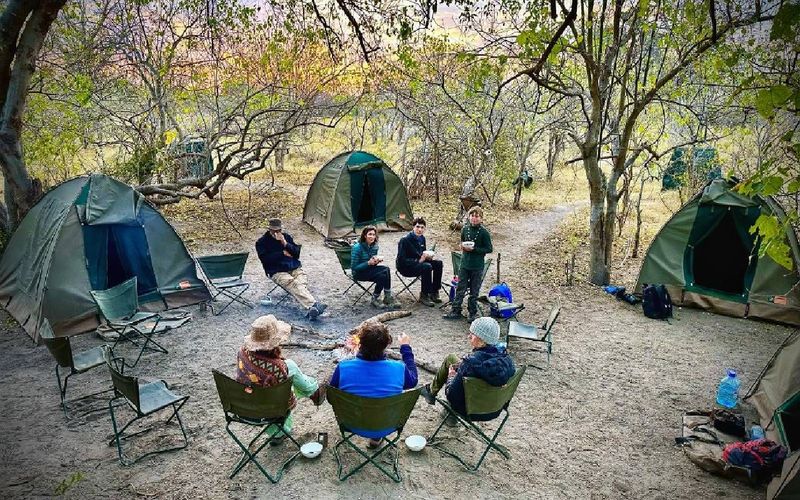
Traveling in groups is a wise strategy when camping in bear country. Bears are less likely to approach larger parties, which they perceive as more threatening. Group travel not only increases safety but also enhances the camping experience through shared responsibilities.
Communicate with fellow campers to coordinate activities and ensure everyone is informed about bear safety protocols. This camaraderie contributes to a secure and enjoyable outing. By sticking together, you reduce the risk of bear encounters, making for a more relaxed adventure.
Keep a Clean Campsite
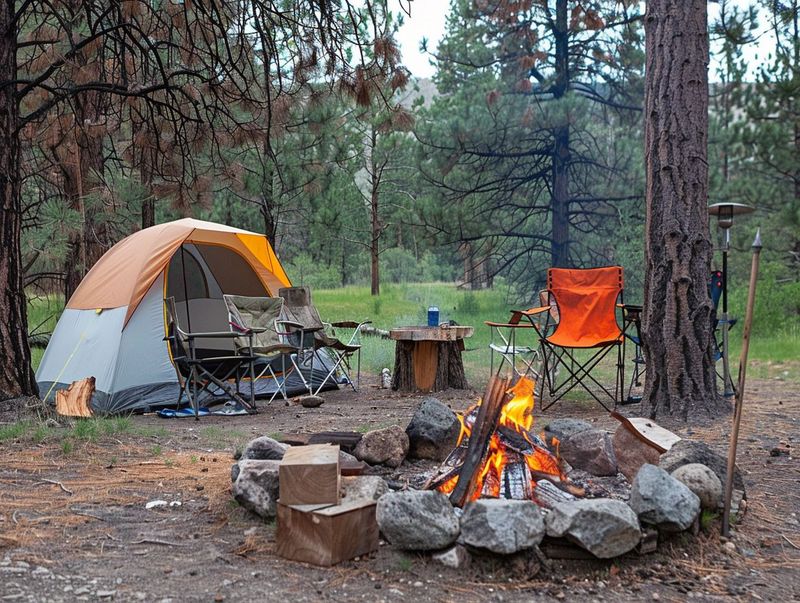
Maintaining a clean campsite is fundamental in bear habitats. Bears are drawn to food scraps and odors, so tidiness is paramount. Regularly clean cooking areas and store all food securely. This discipline helps keep your campsite unattractive to bears.
Use biodegradable soap and water to wash dishes, and immediately pack away any leftovers. A clean camp minimizes risks and fosters a more natural experience. By prioritizing cleanliness, you enhance the safety and enjoyment of your wilderness escapade.
Use Bear Spray
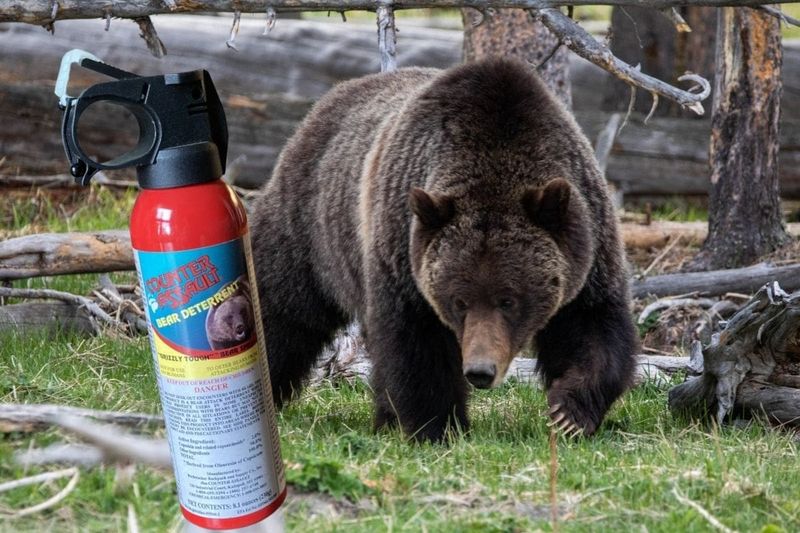
Bear spray is an essential deterrent in bear country, providing a non-lethal means to ward off an approaching bear. Always carry it within reach and familiarize yourself with its use before heading out.
Bear spray can stop a charging bear, giving you precious time to retreat to safety. This tool is a vital part of any camper’s preparation in bear-prone areas. Knowing how to deploy it effectively can make the difference between a safe or dangerous encounter. Always respect wildlife and use bear spray responsibly.
Secure Pet Food
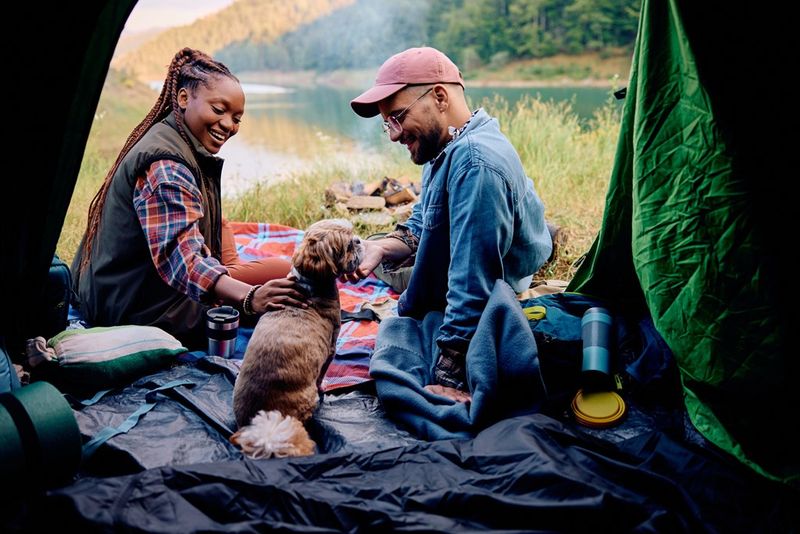
Pet food can be as enticing to bears as human food. Always store it in bear-resistant containers or hang it away from your campsite. This ensures that your pet’s meals don’t attract unwanted visitors.
Feed pets away from sleeping areas, and clean up any spilled food immediately. These precautions help maintain a bear-free camp and protect both pets and wildlife. By managing pet food responsibly, you contribute to a safer and more enjoyable camping experience for everyone involved.
Educate Yourself About Bears
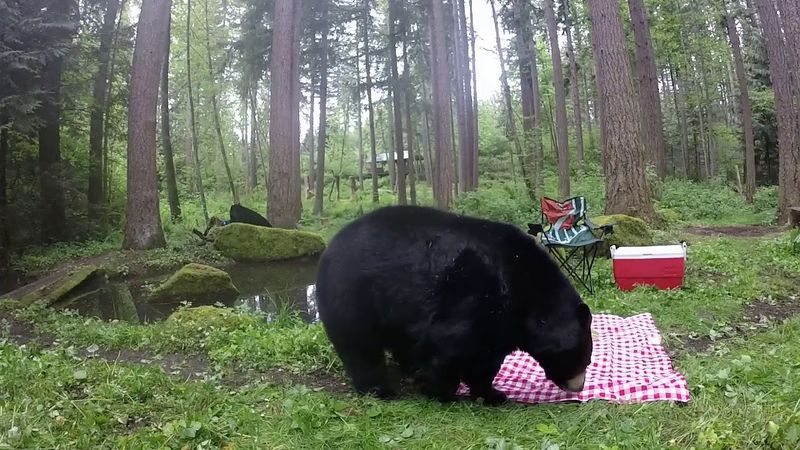
Understanding bear behavior is key to preventing encounters. Educate yourself on how bears communicate and what triggers their aggression. Knowledge about local bear species helps you anticipate their actions and react appropriately.
Attending park ranger talks or reading up on wildlife can provide valuable insights. This knowledge empowers you to make informed decisions, enhancing both your safety and appreciation of the wilderness. By being well-informed, you navigate bear country with confidence and respect for its inhabitants.

